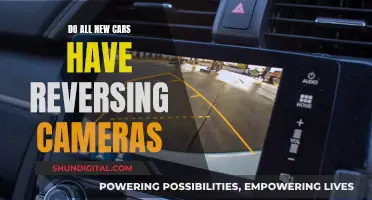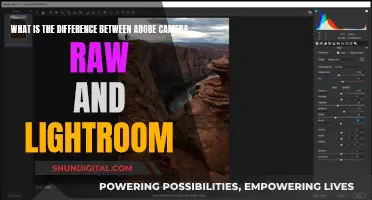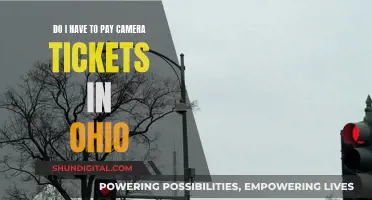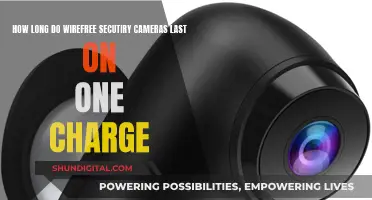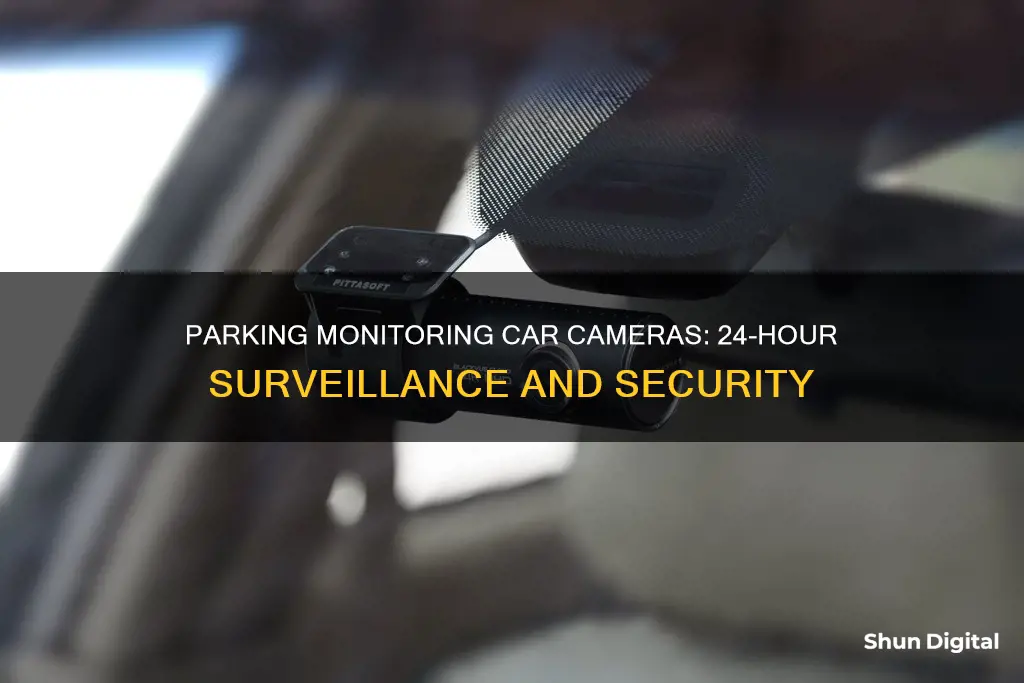
24-hour vehicle cameras, also known as parking surveillance cameras or dash cams with parking mode, are designed to provide continuous video monitoring of a parked vehicle. Unlike traditional dash cams, these cameras operate around the clock, even when the vehicle is stationary and unattended, offering enhanced security and peace of mind to vehicle owners. They are typically powered either directly from the vehicle's battery or via a dedicated external battery pack, and utilize features such as motion sensors, impact detection, night vision, and continuous loop recording to efficiently manage storage space and battery life.
| Characteristics | Values |
|---|---|
| Purpose | Captures vandalism while parked |
| Functionality | Continuous video monitoring of a parked vehicle |
| Power Source | Vehicle's battery or dedicated external battery pack |
| Recording Modes | Motion detection, impact detection, night vision, continuous loop recording |
| Benefits | Deters criminals, enhances security and peace of mind, provides evidence for insurance and legal use, real-time alerts and connectivity |
| Features | Video quality, night vision, motion detection, storage capacity, battery life, connectivity, durability, price and warranty |
What You'll Learn
- A 24-hour parking monitoring camera can act as a deterrent to criminals
- It provides peace of mind and constant surveillance
- The camera footage can be used as evidence for insurance claims and legal proceedings
- The camera has motion and impact detection features
- It can be powered by the car battery or an external battery pack

A 24-hour parking monitoring camera can act as a deterrent to criminals
A 24-hour parking monitoring camera can be an effective deterrent to criminals, reducing the likelihood of your vehicle becoming a target for theft, burglary, or vandalism. Here's how:
Visual Deterrent
The presence of a visible security camera acts as a powerful visual deterrent to potential criminals. Seeing a camera, criminals are more likely to move on to an easier, less-protected target. This effect can be enhanced by installing warning signs that highlight the presence of cameras.
Crime Prevention
The right parking lot security camera can act as a virtual security guard, helping to prevent crime before it happens. It can also alert parking lot operators to any suspicious activities, allowing them to respond in real-time.
Evidence Collection
In the unfortunate event that a crime does occur, a 24-hour parking monitoring camera provides invaluable evidence. Footage can be used to identify suspects, assist police investigations, and support insurance claims and legal proceedings.
Advanced Features
Modern parking monitoring cameras offer advanced features such as motion detection, impact detection, and night vision, further enhancing their effectiveness as a deterrent. For instance, motion sensors can trigger recording when movement is detected, while impact detection can initiate recording when a collision is sensed.
Peace of Mind
24-hour parking monitoring cameras provide constant surveillance, offering peace of mind by ensuring your vehicle is always monitored. This is especially beneficial for vehicles parked in remote or high-risk areas, reducing the constant worry of potential theft or vandalism.
In summary, a 24-hour parking monitoring camera is a valuable tool in the fight against criminal activity. It serves as a visual deterrent, helps prevent crimes, collects crucial evidence, and provides advanced features and peace of mind for vehicle owners.
The Ultimate Guide to TAC Camera Battery Options
You may want to see also

It provides peace of mind and constant surveillance
24-hour vehicle cameras provide peace of mind and constant surveillance by acting as vigilant guardians, monitoring your vehicle even when it is stationary and unattended. This continuous monitoring ensures that your vehicle is always protected, significantly reducing the risk of vandalism and theft.
These cameras are typically powered directly from the vehicle's battery or via a dedicated external battery pack. They utilise motion sensors and impact detection to trigger recording when any movement is detected or a collision is sensed, ensuring that relevant events are captured without wasting storage space on inactive footage.
The benefits of 24-hour vehicle cameras extend beyond traditional car surveillance methods. They act as a powerful deterrent, often making would-be vandals and thieves think twice before targeting your vehicle. Additionally, they provide crucial evidence for insurance claims and legal proceedings, helping to efficiently resolve disputes.
Advanced features like Wi-Fi and cellular connectivity allow for real-time monitoring and alerts on your smartphone, keeping you informed about your vehicle's security status no matter where you are. With clear footage, anytime and anywhere, you can rest assured that your vehicle is under constant surveillance, providing peace of mind when you need it most.
Texas Camera Tickets: Do You Have to Pay?
You may want to see also

The camera footage can be used as evidence for insurance claims and legal proceedings
24-hour parking monitoring cameras are an effective way to safeguard your vehicle when it is stationary and unattended. These cameras are designed to provide continuous video monitoring of your parked car, capturing any incidents of vandalism or theft. They can also be used to monitor your car's interior, keeping an eye on your passengers and ensuring their safety.
One of the most significant benefits of these cameras is their ability to provide crucial evidence for insurance claims and legal proceedings. The camera footage can be invaluable in the event of an accident, hit-and-run, or any other road-related incident. It offers an unbiased and objective account of events, which can be especially useful in situations where eyewitness accounts may be unreliable or contradictory.
In insurance claims, clear evidence provided by the camera footage can help expedite the claims process, making it smoother and quicker. It can assist in determining fault and liability, ensuring that the appropriate parties are held accountable for their actions. This can be crucial in upholding your rights and protecting you from false accusations or unfair liability claims.
Additionally, in legal proceedings, the camera footage can be used as evidence in court, provided it complies with privacy regulations and evidentiary standards. It can aid in reconstructing accident scenes, ascertaining fault, and supporting your case. The impartial nature of the footage can help bring clarity to conflicting narratives and "he said, she said" situations, ultimately helping to establish the truth.
It is worth noting that the admissibility of camera footage may vary depending on the country or state, and it should be accurate, dependable, and unaltered to be used as evidence. Nonetheless, the ability to use 24-hour parking monitoring camera footage as evidence in insurance claims and legal proceedings provides vehicle owners with an added layer of protection and peace of mind.
The Evolution of Camera-Making Materials
You may want to see also

The camera has motion and impact detection features
The motion and impact detection features of a 24-hour parking monitoring car camera are essential for providing continuous protection and surveillance of your vehicle. These features ensure that the camera captures relevant events, offering valuable evidence in the event of vandalism or a hit-and-run incident.
The motion detection feature typically utilises built-in motion sensors to trigger recording when movement is detected around the vehicle. This can be customised by adjusting the sensitivity levels, minimising false alarms. During periods of inactivity, the camera may enter a low-power state, only activating full recording mode when motion is detected. This smart functionality helps manage storage space and battery life, ensuring efficient operation.
The impact detection feature, on the other hand, is designed to initiate recording when the camera senses a collision or impact. This feature is particularly useful in detecting and capturing incidents such as hit-and-runs or vandalism. The camera's G-sensor, or gravity sensor, plays a crucial role in detecting these impacts, triggering the camera to start recording.
In addition to motion and impact detection, some cameras may also offer advanced features like time-lapse mode, where it captures a still image at set intervals, creating a stop-motion-like video. This mode can be useful for monitoring your vehicle's surroundings without constantly recording.
It is important to note that not all cameras have both motion and impact detection features, and some may only have one or the other. When choosing a parking monitoring car camera, it is essential to consider your specific needs and preferences to ensure you select a camera with the right features.
Diorama Mode: Creative Camera Setting for Miniature Effect
You may want to see also

It can be powered by the car battery or an external battery pack
24-hour vehicle cameras, also known as parking surveillance cameras or dash cams with parking mode, are designed to provide continuous surveillance of a vehicle even when it is stationary and unattended. This is particularly useful for monitoring your car when it is parked overnight, as this is when the risk of vehicle theft and vandalism is highest.
To achieve this continuous operation, 24-hour vehicle cameras can be powered in two ways: directly from the vehicle's battery or via a dedicated external battery pack. This allows the cameras to operate independently of the car engine, ensuring that your vehicle is always monitored, even when the ignition is off.
Using the car battery as a power source typically involves hardwiring the camera to the car's electrical system or fuse box. This method provides a continuous power supply to the camera, allowing it to record even when the car is turned off. However, it is important to note that using the car battery as the sole power source may eventually drain it. As such, some dash cams with parking mode are designed with power-saving features to prolong battery life.
Alternatively, an external battery pack provides an independent power source for the camera, ensuring that the car battery is not drained. These battery packs can be charged at home and then plugged into the cigarette lighter socket or hardwired to the vehicle's battery. This option offers flexibility and can be particularly useful for monitoring vehicles parked in remote areas where there is no access to power outlets.
In addition to power source options, 24-hour vehicle cameras utilize various recording modes to efficiently manage battery life and storage space. For example, during periods of inactivity, the cameras may enter a low-power state, only activating full recording mode when triggered by motion or impact sensors. This smart functionality ensures that relevant events are captured without wasting storage space on hours of useless footage.
By combining the flexibility of external battery packs with power-saving recording modes, 24-hour vehicle cameras offer a reliable and efficient solution for continuous surveillance of parked vehicles, providing peace of mind and crucial evidence in the event of any incidents.
Cinematography's Focus on Death: Camera's Perspective
You may want to see also
Frequently asked questions
A 24-hour parking monitoring car camera, also known as a parking surveillance camera or dash cam with parking mode, is a specialised device designed to provide continuous video monitoring of a vehicle when it is parked and stationary.
These cameras are typically powered either directly from the vehicle's battery or via a dedicated external battery pack. They utilise features such as motion sensors, impact detection, and night vision to capture relevant events, providing peace of mind and evidence when needed.
The presence of a 24-hour parking monitoring car camera acts as a powerful deterrent against vandals and thieves. It provides constant surveillance, reducing the risk of vandalism and theft. Additionally, the footage captured can be crucial evidence for insurance claims and legal proceedings.


